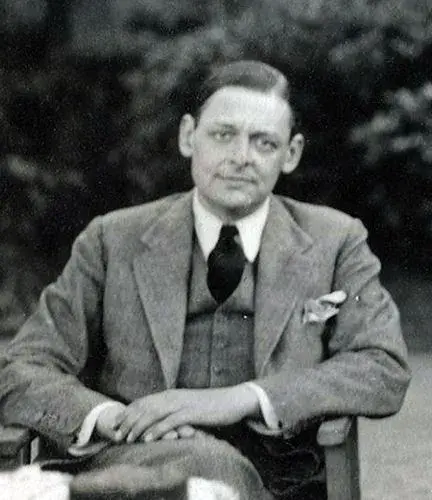T.S. Eliot on the Relationship Between Culture and Religion
- Brian Gall

- Oct 16, 2024
- 3 min read
Updated: Jan 21, 2025

Our secularized Western world today doesn’t know what to do with religion and culture and the relationship they are supposed to have with each other. Many people think that even with the decline of Christianity in the West, we can still keep much of our cultural identity that has formed the Western world. It is here that I think it would be prudent for us to listen to the words of the British poet, T.S. Eliot.
In his book Notes Toward the Definition of Culture, he reflects on the relationship between religion and culture and Christianity’s central role in forming the Western world. Eliot states,
“While we believe that the same religion may inform a variety of cultures, we may ask whether any culture could come into being, or maintain itself, without a religious basis. We may go further and ask whether what we call the culture, and what we call the religion, of a people are not different aspects of the same thing: the culture being, essentially, the incarnation (so to speak) of the religion of a people…. We have to try to avoid two alternative errors: that of regarding religion and culture as two separate things between which there is a relation, and that of identifying religion and culture…. Hence, … I am obliged to maintain two contradictory propositions: that religion and culture are aspects of one unity, and that they are two different and contrasted things.”
It is a tragedy that our society today seems to have forgotten the simple fact that the basis of every culture is religion (the root word of culture is cult). Therefore, if it is true that religion is the heart of culture, then what happens to a place like Europe that has by and large neglected and thrown off its Christian heritage? Eliot states,
“I have refused to consider the culture of Europe simply as the sum of a number of unrelated cultures in the same area …. There are, however, certain common features in Europe, which make it possible to speak of a European culture. What are they?
The dominant force in creating a common culture between peoples each of which has its distinct culture, is religion. …. I am talking about the common tradition of Christianity which has made Europe what it is, and about the common cultural elements which this common Christianity has brought with it. If Asia were converted to Christianity tomorrow, it would not thereby become a part of Europe. It is in Christianity that our arts have developed; it is in Christianity that the laws of Europe have – until recently – been rooted. It is against a background of Christianity that all our thought has significance. An individual Christian may not believe that the Christian Faith is true, and yet what he says, and makes, and does, will all spring out of his heritage of Christian culture and depend upon that culture for its meaning. Only a Christian culture could have produced a Voltaire or a Nietzsche. I do not believe that the culture of Europe could survive the complete disappearance of the Christian Faith. …. If Christianity goes, the whole of our culture goes. Then you must start painfully again, and you cannot put on a new culture ready-made. You must wait for the grass to grow to feed the sheep to give the wool out of which your new coat will be made. You must pass through many centuries of barbarism. We should not live to see the new culture, nor would our great-great-great-grandchildren: and if we did, not one of us would be happy in it.
To our Christian heritage we owe many things beside religious faith. Through it we trace the evolution of our arts, through it we have our conception of Roman Law which has done so much to shape the Western World, through it we have our conceptions of private and public morality. And through it we have our common standards of literature, in the literature of Greece and Rome. The Western world has its unity in this heritage, in Christianity and in the ancient civilizations of Greece, Rome and Israel, from which, owing to two thousand years of Christianity, we trace our descent. …. No political and economic organization, however much goodwill it commands, can supply what this culture unity gives. If we dissipate or throw away our common patrimony of culture, then all the organization and planning of the most ingenious minds will not help us, or bring us closer together.”



Comments